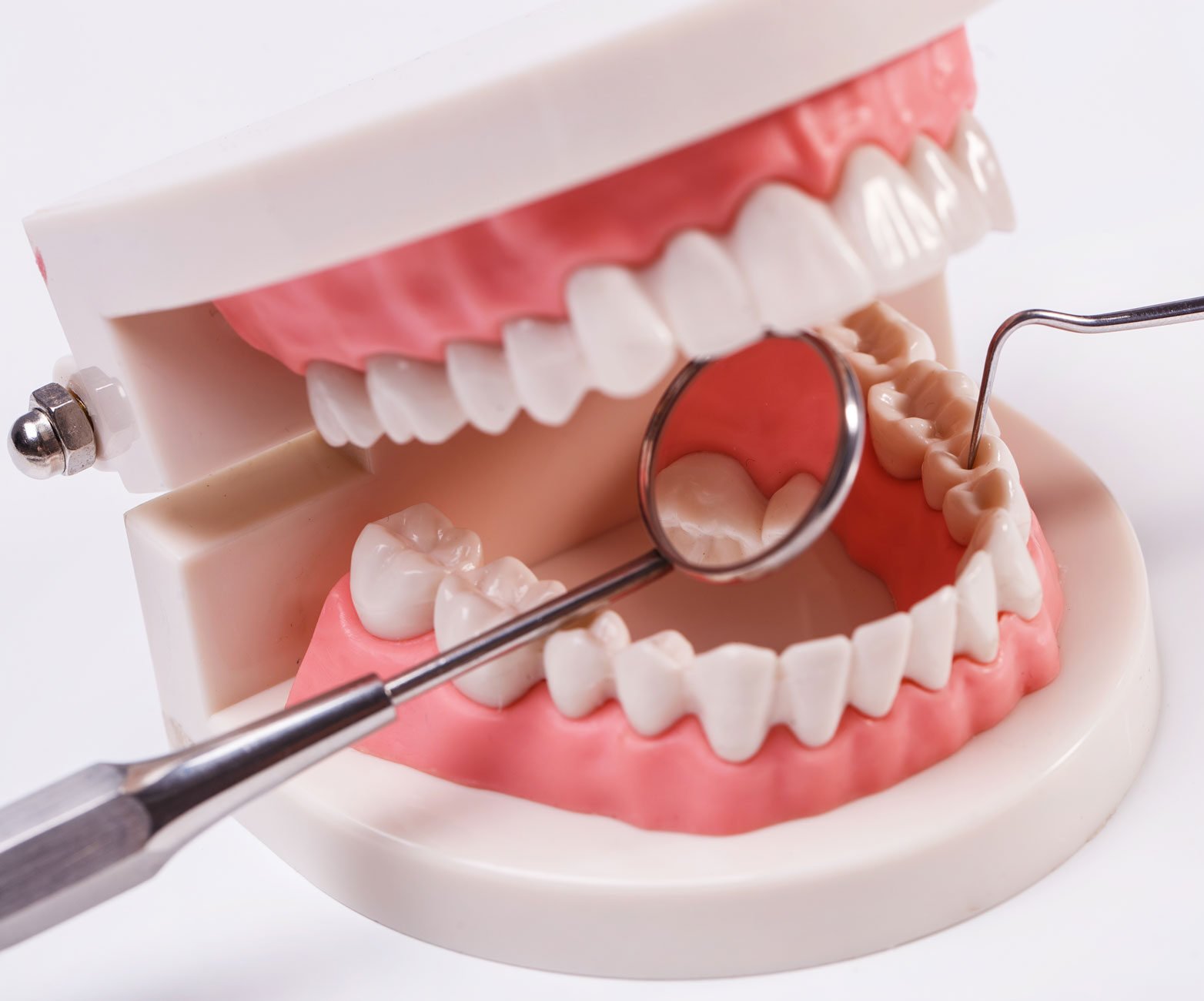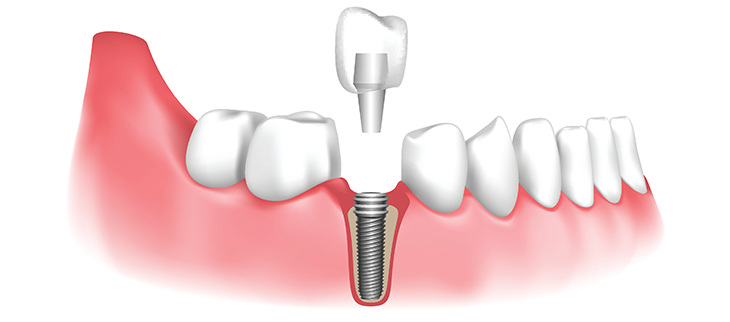What is the best treatment for tooth cavity? Tooth cavities are a common dental problem that affects millions of people worldwide. If you have a cavity, the best treatment will depend on various factors, including the severity and location of the cavity. In this article, we’ll explore some of the most effective treatments for tooth cavities, ranging from fillings to root canals and dental implants. Keep reading to find out which option may be right for you.
Exploring the Role of Dental Implants in Treating Tooth Cavities: A Comprehensive Overview
Exploring the Role of Dental Implants in Treating Tooth Cavities: A Comprehensive Overview is an informative article on the use of dental implants to treat tooth cavities. The article discusses the benefits of dental implants over traditional treatments and provides a detailed overview of the implant procedure.
The benefits of dental implants over traditional treatments, such as fillings or root canals, are highlighted in the article. Dental implants provide a more permanent solution for treating cavities, as they integrate with the jawbone and function like a natural tooth. Additionally, dental implants can help to prevent further decay and damage to surrounding teeth.
The article goes on to provide a step-by-step overview of the dental implant procedure, including the initial consultation, the implant surgery, and the placement of the implant crown. The importance of proper aftercare, such as regular brushing and flossing, is also emphasized.
Overall, Exploring the Role of Dental Implants in Treating Tooth Cavities provides a comprehensive overview of the benefits and process of using dental implants to treat tooth cavities.
What are some ways to treat a cavity without visiting a dentist?
It’s important to note that treating a cavity without visiting a dentist is not recommended. While there are a few home remedies that may provide temporary relief, they will not cure the cavity and can actually make it worse over time. The best course of action is to see a dentist as soon as possible to prevent further damage to the tooth.
However, some home remedies that may alleviate discomfort from a cavity include:
– Oil pulling: swishing coconut oil or sesame oil around in your mouth for 15-20 minutes may help kill bacteria in the mouth.
– Clove oil: dabbing clove oil on the affected tooth may help to numb the area temporarily.
– Saltwater rinse: rinsing the mouth with warm saltwater can help to reduce inflammation and kill bacteria.
Again, these remedies should not replace professional dental treatment. If left untreated, cavities can become larger and more painful and may require more invasive treatment, such as a root canal or extraction. It’s important to maintain regular dental checkups and cleanings to prevent cavities from developing in the first place.
What is the quickest way to eliminate cavities?
The quickest way to eliminate cavities in the context of dental implants is by practicing good oral hygiene habits. This includes brushing your teeth twice a day with a fluoride toothpaste, flossing daily, and using an antiseptic mouthwash. Regular visits to the dentist for professional cleanings and exams are also essential.
If you already have cavities, they will need to be treated by a dentist before getting dental implants. The treatment for cavities typically involves removing the decayed portion of the tooth and filling it with a dental filling material. Depending on the severity of the cavity, a root canal or dental crown may also be necessary.
Prevention is key when it comes to avoiding cavities and maintaining good oral health. Eating a balanced diet, limiting sugary and acidic foods and drinks, and avoiding tobacco products can all help prevent cavities from forming. By taking care of your teeth and gums, you can minimize your risk of developing cavities and other dental problems that could impact your ability to get dental implants in the future.
Is it possible to treat a cavity without removal?
No, it is not possible to treat a cavity without removal. Once a cavity has formed, the affected area of the tooth needs to be removed in order to prevent further decay or infection from spreading. The removal process involves cleaning out the decayed portion of the tooth and filling the space with a dental filling material to restore the tooth’s shape and function. If left untreated, cavities can lead to more serious dental problems such as infected pulp, abscesses or even tooth loss. Therefore, it is important to visit a dentist regularly to identify and treat cavities early on. Dental implants, which are artificial tooth roots that are surgically placed into the jawbone, are a solution for missing teeth that cannot be treated by simply removing the cavity.
Is it possible to save a tooth with a cavity?
Is it possible to save a tooth with a cavity?
It depends on the extent of the cavity. If the cavity has only affected the enamel, then the dentist can restore the tooth with a filling. However, if the cavity has progressed deeper into the tooth, it may have reached the pulp, which is where the nerves and blood vessels are located. In this case, a root canal treatment may be necessary to save the tooth.
How do Dental Implants come into play?
In cases where the tooth cannot be saved, a dental implant is a great alternative. The implant is surgically placed into the jawbone and acts as an artificial tooth root. After a period of healing, a crown or bridge is placed over the implant, restoring functionality and aesthetics to the patient’s smile. It is a long-term and durable solution that can last a lifetime with proper care.
Frequent Questions
Can dental implants be used to treat tooth cavities, and if so, what is the success rate compared to other treatments?
Dental implants cannot be used to treat tooth cavities, as they are designed to replace missing teeth by surgically placing an artificial root (implant) in the jawbone and attaching a replacement tooth onto it.
For the treatment of cavities, the most common and successful method is still dental fillings. A dentist will remove the decayed portion of the tooth and fill it with a material such as composite resin or amalgam. The success rate of dental fillings is generally high, as long as good oral hygiene practices are maintained.
Other treatments for tooth cavities include dental crowns and root canals, depending on the severity of the decay and the amount of tooth structure that has been lost. The success rates of these treatments can vary depending on individual cases and factors such as oral hygiene and overall health.
In summary, while dental implants are not a suitable treatment for tooth cavities, there are other effective treatments available with high success rates. It is important to consult with a dental professional to determine the best treatment for your individual needs.
What factors should be considered when deciding whether a dental implant or traditional filling is the best treatment for a tooth cavity?
When deciding whether a dental implant or traditional filling is the best treatment for a tooth cavity, several factors should be considered:
1. The size of the cavity: If the cavity is small, a traditional filling may be sufficient. However, if the cavity is large, a dental implant may be a better choice.
2. The location of the cavity: If the cavity is in a visible area, a dental implant may be preferred for cosmetic reasons. If it is in a less visible area, a traditional filling may be sufficient.
3. The overall health of the tooth: If the tooth is weak or has other issues, a dental implant may be a better choice as it provides more support for the tooth.
4. The patient’s budget: Dental implants are generally more expensive than traditional fillings, so the patient’s budget should also be considered.
5. The patient’s oral health: If the patient has gum disease or other oral health issues, a dental implant may not be a viable option.
In summary, the decision to choose a dental implant or traditional filling for a tooth cavity depends on several factors and should be made after careful consideration of these factors with the patient’s dentist.
How does the cost of dental implant treatment for cavities compare to other options, and are there any financing programs available to make it more affordable?
Dental implant treatment for cavities is generally more expensive than other options such as fillings or root canals. However, dental implants are a long-term solution and can last a lifetime with proper care, while fillings and root canals may need to be replaced in the future.
It is important to note that the cost of dental implant treatment may vary depending on several factors, including the location of the clinic, the extent of the procedure, and the type of implant used.
Financing programs are often available for patients to make dental implant treatment more affordable. Many clinics offer payment plans or financing options through third-party providers. Additionally, some insurance plans may cover a portion of the cost of dental implants.
Overall, while dental implant treatment for cavities may be more expensive than other options, their long-term benefits and financing options make them a worthwhile investment for many patients.
In conclusion, Dental Implants are considered the best treatment for tooth cavities. While other treatments such as fillings and root canals can temporarily address the issue, they do not provide a long-term solution like Dental Implants do. Dental Implants are strong and durable, look and feel like natural teeth, and prevent further damage to surrounding teeth and gums. If you are considering treatment for a tooth cavity, be sure to consult with a qualified dental professional who can help guide you towards the best treatment option for your individual needs.



